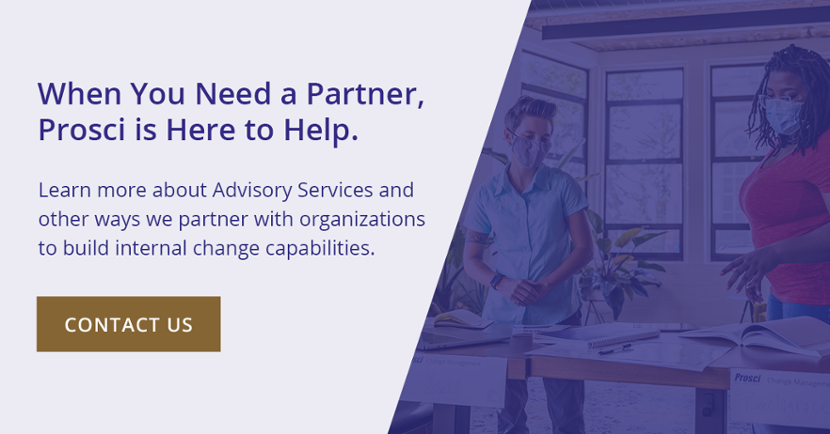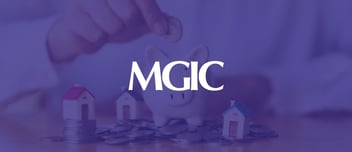How Strategic HR Partners Support Critical Workplace Changes

3 Mins
Updated: March 12, 2024
Published: August 11, 2021

For many organizations, the human resources (HR) function is shifting from being a tactical function to a strategic partnership—with HR professionals having a seat at the table and helping the organization make decisions about products, functions, roles and other critical workplace changes.
Return-to-the-Workplace Changes
Nowhere has the shift from tactical HR to strategic HR been truer than with return-to-the-workplace planning and initiatives. Whether an organization is experiencing change disruption, an organizational redesign, or a shift in culture, leaders increasingly rely on the people-focused insights and change-enabling skillsets of strategic HR partners to elevate success with critical workplace changes.
Change saturation and disruption
In change management, saturation is generally defined as how much change an individual or a group or an organization can handle. If you think of it like a bucket of water, we know we only have so many buckets in the organization, and each can only hold so much before it overflows. Change disruption is more about how much change is happening overall in an organization. In HR, we are in a unique situation to see the impacts of both. We see the capacity limitations starting to happen with saturation, and we see the number of changes affecting all employees on the change disruption side. Because the return-to-the-workplace situation is layered on top of a numerous other initiatives, the entire organization is managing change overload.
Change disruption can show up to HR when they are supporting people managers, who are pressured by the number and magnitude of changes happening. HR can help them understand that there is a structure and path to follow as they guide their team through changes. And by deploying good change management practices, including the ADKAR Model, HR can help people managers become successful change leaders.
Another way HR professionals can support the change team is to make sure there's a strong People Manager Plan in place. This is key to ensuring that people managers have the support, knowledge and confidence they need to react to constantly changing decisions and events, particularly on the return-to-the-workplace front. As part of the People Manager Plan for one client, Prosci helped develop specific talking points for managers to use with teams when having sensitive conversations about returning to the workplace.

Organizational structure redesign
Organizations often redesign their structure to align with a change in leadership or functions. You might have a new leader coming into a team who wants a different structure, or a new product or tool launch that requires a new team. A potential challenge may arise when those changes are confidential. To minimize disruption, HR can help by using their change knowledge or engaging with change management resources in the early stages of a reorganization. When part of the strategic change team, HR can help decide how and when to share the information with employees.
We're seeing restructuring a lot with clients who are planning for the return to the workplace. New teams have been formed or teams have been restructured because of changes in scope or roles. In one case, a client had several new managers moving into leadership roles without previous leadership experience. And they were also having to learn how to lead teams virtually. Both situations required knowing the talents of the specific people involved. Our Advisory Services team worked with HR to identify and provide the right training to equip these new managers with the skills they needed quickly.

Culture changes
An organization can experience different kinds of culture changes. It can be a change to the way they work. It can be a change to where they work. It can even be new work, such as a new product or the result of business and strategic changes. Culture is one of the most influential ways we see changes happening in an organization, but it can be hard to recognize.
An HR leader is often among the first to see or learn about a change in culture. Sometimes the change can be intentional—somebody says, "We're going to do things this new way in our organization." Or it starts organically and unintentionally. Culture changes and mindset shifts are happening as a natural result of return-to-the-workplace initiatives, but engaging employees and managers with these types of changes can be a challenge. HR professionals help by identifying where you need to bring in change management to effectively guide the shifts in the culture brought about by your changes, whether intentional or not.
Some culture changes we’re witnessing as a result of good return-to-the-workplace planning are quite positive. Organizations are giving employees a voice in deciding how and where they work. That wasn’t always true in the past. Some studies indicate that this shift is helping to elevate employee engagement, something that HR professionals are always keen to integrate into their planning.
Strategic Partners in Return-to-Workplace Changes
HR professionals are critical enablers of change who can spot organizational change impacts long before others see them coming. And as strategic partners in change, they are uniquely positioned to help people managers guide their teams through the many inevitable changes ahead as organizations return to the workplace. Whether you are actively planning for disruptive changes ahead or just starting to understand the possibilities, a well-equipped HR professional with access to change management resources can bring immeasurable insights and value to your organization and teams.


